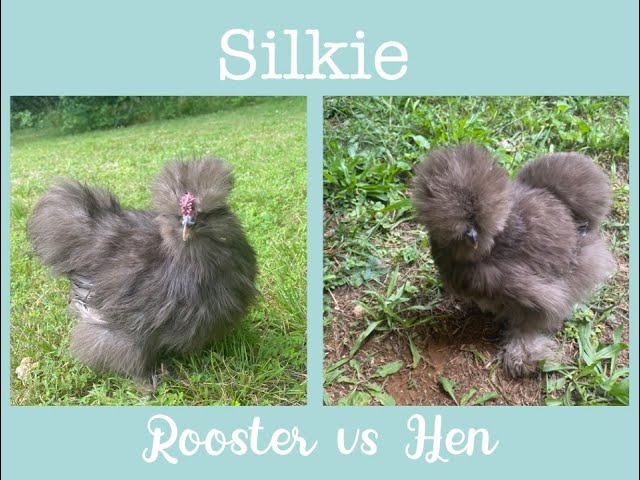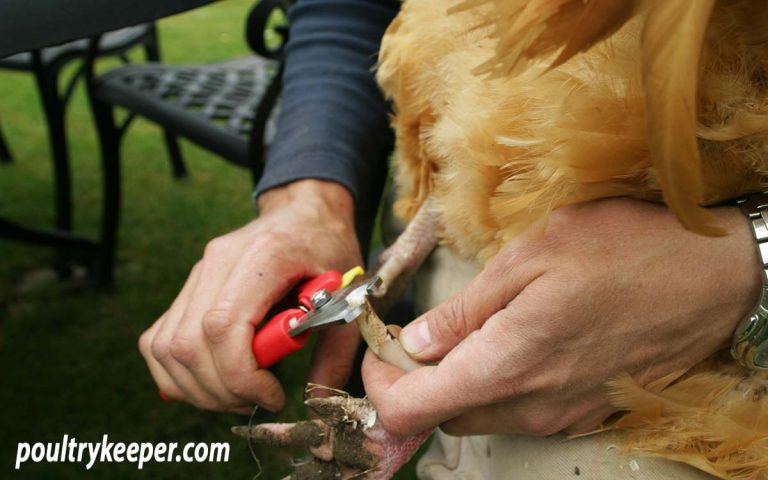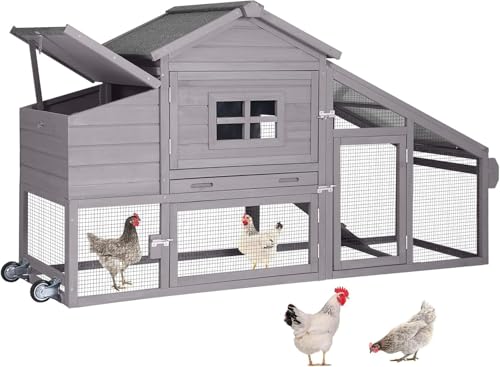How to Get a Rooster to Stop Crowing?
To get a rooster to stop crowing, try reducing its light exposure at dawn. Another option is to limit its interactions with hens during early morning hours.
Roosters are known for their crowing, often disturbing peaceful mornings. This vocalization serves various purposes, including establishing territory and communicating with other chickens.
For many chicken owners, constant crowing can become a nuisance, especially in urban settings. Knowing the reasons behind this behavior is essential for finding effective solutions.
With a few adjustments, you can create a more tranquil environment for both you and your flock. Implementing changes in the rooster’s routine or environment may reduce crowing significantly. Explore practical strategies to help manage this common issue and enjoy a quieter backyard.
The Nature of Rooster Crowing
Roosters crow for many reasons. They announce their territory and establish dominance. Morning light triggers crowing, signaling the start of the day. Roosters may also crow to attract hens. Their crowing can occur throughout the day, not just at dawn.
Several factors influence a rooster’s crowing. Age plays a role; younger roosters tend to crow less. The breed also matters; some breeds are naturally quieter. Environmental changes, like new noises or animals, can cause increased crowing.
| Factor | Impact on Crowing |
|---|---|
| Age | Younger roosters crow less frequently. |
| Breed | Some breeds are naturally quieter. |
| Environment | New sounds can lead to more crowing. |

Credit: www.wikihow.com
Assessing Your Situation
Recognizing your rooster’s behavior is key to managing its crowing. Roosters crow to establish territory and communicate. Consider their age and breed; some breeds are louder than others. A young rooster may crow less as it matures.
Local regulations often address noise from roosters. Check your area’s laws about keeping roosters. Some places have strict noise ordinances. Knowing these rules can help you plan better. Keeping good relations with neighbors is essential.
Consider soundproofing your coop. Adding insulation may reduce noise levels. Providing distractions, like toys, can also help. A happy rooster may crow less frequently.
Environmental Modifications
To help a rooster stop crowing, darkening the coop can be effective. Use heavy curtains or blankets to block out light. Roosters often crow at dawn, so keeping the coop dark helps reduce this.
Reducing external stimuli is also important. Minimize noise and activity around the coop. Cover windows to limit distractions from outside. A calm environment can lead to quieter roosters.
Try to keep the coop quiet and comfortable. This encourages the rooster to stay calm and crow less. Regularly check the coop for any disturbances.

Credit: www.wikihow.com
Dietary Adjustments
Diet can play a big role in how often a rooster crows. Certain feeds may lead to more crowing. High-protein diets can increase vocalization. Choosing a balanced diet helps keep a rooster calm.
Timing meals also affects crowing. Feeding your rooster during the day can reduce morning crows. A well-fed rooster is less likely to crow excessively. Keeping meals consistent helps establish a routine.
| Feed Type | Effect on Crowing |
|---|---|
| High-Protein Feed | Increases Crowing |
| Balanced Diet | Reduces Crowing |
| Consistent Feeding Time | Less Morning Noise |
Behavioral Training Techniques
Using positive reinforcement can help reduce a rooster’s crowing. Reward your rooster for quiet behavior with treats or praise. This encourages him to stay calm.
Establishing a routine is very important. Roosters thrive on consistency. Feed them at the same time every day. This helps them feel secure and less likely to crow.
Provide a comfortable living space. A cozy coop can make your rooster feel safe. When roosters feel secure, they crow less often.
Try to minimize stressors around the rooster. Loud noises or sudden movements can trigger crowing. Keep the environment peaceful for the best results.
Collar Use
Choosing the right collar for your rooster is very important. A comfortable collar can help reduce crowing. Look for collars made of soft materials. Avoid collars that are too tight or too loose. Measure your rooster’s neck before buying.
Safe collar practices are crucial for your rooster’s well-being. Always check the collar regularly. Make sure it does not cause any irritation or injury. A collar should allow your rooster to eat and drink easily. Remove the collar at night to prevent accidents.
When To Seek Professional Help?

Credit: www.youtube.com
Understanding your rooster’s behavior is important. Identifying stress or illness is key. Signs include excessive crowing, lethargy, or changes in eating habits.
Consulting with a veterinarian can help. A vet can check for health issues like respiratory problems or infections. Early detection is crucial for your rooster’s well-being.
Keep a close eye on your flock. Changes in behavior can signal distress. A healthy environment promotes calmness and reduces crowing.
Final Talks of How to Get a Rooster to Stop Crowing?
To help a rooster stop crowing, adjust its environment. Limit daylight by covering its coop to create darkness, as roosters crow with light. Ensure it’s comfortable and well-fed, as hunger or discomfort can trigger crowing. You could also try a “no-crow” collar, which gently reduces volume. Keep your rooster entertained, as boredom can lead to excessive noise. These steps can lessen crowing and improve your rooster’s behavior.
Enjoy your peaceful mornings!
FAQs About Rooster Crowing
To stop a rooster from crowing, consider a few strategies. Keep the rooster in a quiet area, away from bright lights. Use a dark, enclosed coop to help him sleep longer. Cover the coop at night to block noise and light. Additionally, you can train him with gentle methods to reduce crowing. If needed, consult a vet for more specific advice or consider keeping a quieter breed of chicken.
Roosters crow throughout the day for several reasons. They mark their territory and assert dominance over other birds. Crowing can also signal the start of the day, as they are naturally inclined to do so at dawn. Additionally, roosters may crow in response to noise, movement, or changes in their environment. They can be quite vocal, expressing their presence and communicating with other chickens.
To stop a neighbor’s rooster from crowing, communicate politely with your neighbor. Explain the problem and suggest solutions. You could ask them to keep the rooster indoors during early hours or soundproof its coop. If the issue continues, check local noise ordinances. You may also consider using white noise machines or earplugs to reduce the noise in your home. Keeping calm and friendly will help maintain a good relationship with your neighbor.
Roosters crow in the morning to signal the start of a new day. This behavior is part of their natural instinct. They often crow at sunrise to mark their territory and communicate with other birds. The crowing helps establish their dominance in the flock. Additionally, roosters may crow at different times throughout the day due to changes in light, social interactions, or even to alert others of potential danger.
Roosters crow for several reasons. They announce their territory and signal the start of a new day. Crowing can also occur when they feel threatened or want to communicate with other birds. Some roosters crow more than others due to their personality or breed. Light changes or even the presence of other animals can trigger crowing too. It’s a natural behavior that helps them express themselves.
To silence a rooster, consider a few options. You can keep it indoors during the early morning hours. Providing a dark and quiet space can help reduce its crowing. Some owners use soundproofing methods, like covering the coop with blankets. Another method is training the rooster with positive reinforcement to stay quiet. Lastly, if all else fails, rehoming might be the best solution to manage the noise effectively.







